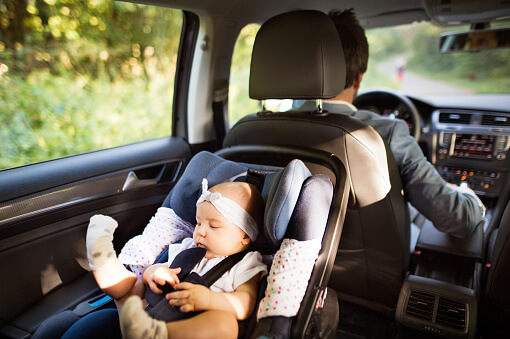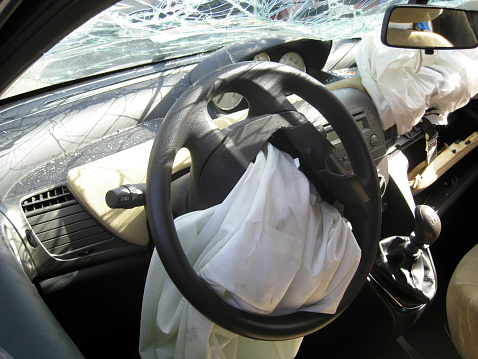A tragic accident recently left a 10-month-old infant on life support in Illinois. According to WGNTV, the infant was in a Hyundai Elantra that was sitting in the right lane of Eastbound I-190. The car the infant was in had no lights on and the vehicle was not moving at the time of the accident, which occurred at 3:30 AM on a Sunday morning. The Elantra was struck by a Honda Odyssey, causing injury to both the baby and the other person inside of the car.
Unfortunately, the infant was reportedly not properly restrained inside of the vehicle at the time of the accident. Both the driver of the Elantra and the driver of the vehicle who rear-ended the Elantra were injured and had to be transported to the hospital. It was the unsecured baby whose injuries were the most severe, though.
This tragic accident illustrated how important it is for parents to ensure that infants and toddlers are kept secure while they are riding in cars. Parents.com reports more than 1,700 children under 16 are killed in car accidents each year, and another 240,000 kids are hurt. Some of the deaths and serious injuries could be prevented if parents used car seats or booster seats correctly.
According to CBS.com, car seats and booster seats can make a really big difference in how a crash affects a young child. If an infant is properly secured in an appropriate infant seat, the chances of the infant dying in a car accident are reduced by 71 percent. For toddlers, the chances of dying in a car accident are reduced by 54 percent through the use of a booster seat.
Even older kids could be saved if parents continued to use booster seats as long as safety experts recommend. Most kids should actually continue to ride in the back of a car in a booster seat until they are eight years old. Unfortunately, a lot of parents stop putting their kids into booster seats as they get older. This is why Parents.com indicates that the risk of death is higher for kids ages four to eight, as compared with kids under the age of four.
A lot of parents who try to use car seats also end up making errors that result in their safety efforts for their kids being less effective. According to Forbes, more than 95 percent of parents of newborn babies make errors in the way car seats are used. Parents make mistakes both in how they position their infants in the car seat and how the car seat is installed.
Of the parents who make errors, around half of the parents make at least five mistakes. The parents least likely to make these errors already have older children, so parents may get better at protecting infants with more practice.
















